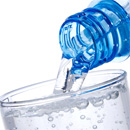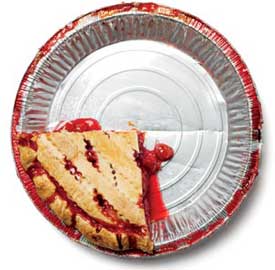Try a Wheat-Free Diet to Improve Your Health
In order to feel your best, you have to eliminate foods that weigh you down and contribute to poor health. In some people, wheat is the culprit of obesity and gastrointestinal problems. If you’re overweight or suffer with digestive health issues, going on a wheat-free diet may help.
Going Wheatless Can Relieve Irritable Bowel Syndrome and Constipation
Irritable bowel syndrome can cause constipation, diarrhea, bloating, flatulence and abdominal pain. No one knows the exact cause of this condition, so it can’t be cured. You can, however, find ways to relieve the symptoms. Some of the proteins found in wheat have been shown to cause IBS symptoms, so eliminating this food from your diet can help alleviate discomfort.
If you’re plagued with constipation, getting rid of wheat may serve up some relief. Wheat is difficult to digest, so it can block the intestines and cause constipation. When you avoid wheat, it reduces the risk of clogged intestines and allows food to move through your digestive tract unhindered.
If you replace bread and other wheat products with fresh fruits and vegetables, it increases your fiber intake. Fiber is important in the diet because it helps regulate the bowels and keeps your digestive tract healthy.
Lose Weight and Reduce Chemical Toxins on a Wheat-Free Diet
When you eliminate wheat from your diet, your intake of boxed, canned and frozen foods get reduced by default. When there are no processed foods in your diet, you have no choice but to eat natural, whole foods to satisfy your appetite.
Examples of whole foods include grass fed meats, organic chicken, fresh vegetables, fruits, beans, legumes, seeds and eggs. These foods are lower in calories, so when you eat them, you reduce your caloric intake and drop weight.
Losing weight improves your health because it reduces your risk of cardiovascular disease, diabetes and high blood pressure. Fruit, veggies and beans expand in the stomach and keep you full longer. The longer you stay full, the less you eat. When you eat less, you are more likely to trim down.
In addition to being riddled with calories, chemical additives like chlorine dioxide and azocarbonamide are added to processed wheat products. The human body was not created to handle the toxins found in these foods. When you eat them, you’re slighting your body of the live enzymes it needs to carry out digestive functions.
A Wheat-Free Eating Plan Can Help Reduce Joint Pain and Control Diabetes
If you suffer with joint pain, eating wheat only contributes to the problem. Wheat can reduce your body’s ability to manage pain caused by arthritis and osteoporosis. Being overweight only makes matters worse. The weight you lose on a wheat-free diet can reduce pressure on your joints and relieve pain.
Wheat is a carbohydrate. When you eat this food, it breaks down in the body and converts into sugar. This can lead to uncontrolled blood glucose levels. If you suffer with diabetes, uncontrolled blood sugar can cause complications like kidney failure, blindness and neuropathy.
If you are on a wheat-free diet, read food labels carefully. Products that contain this ingredient are not as easy to identify as you think. Obvious foods that contain wheat include pasta, bread, crackers, cereal and cookies. Some items you might not think to look out for include soups, gravies, ice cream and pasta sauces.
If you want to reduce the time you spend reading food labels, go to your local health food store and pick up some of the wheat-free foods they have available. Products that are labeled gluten-free don’t contain wheat, so they are also appropriate for a wheatless diet.
-
Study the most effective Way in The best way to Slim down Quick
Fat saved in your body occurs due to safe-keeping of excess essential
-
The Dangerous Health Effects of Commuting
Long commutes have always been annoying, but as far as being ha
-
The Secrets To The Fat Burning Furnace Diet Program
When you are first deciding to start a diet program or plan, it is ess
-
Losing Weight Naturally Is An Action and Not A Craze
You have read all that you wish to know about how to stop being ov
-
Lose That Stubborn Belly Fat With These Excellent Fitness Tips
Some people think fitness takes too much time and has to be hard to do
-
21 Ways to Reward Yourself Without Food
It’s important to reward yourself for your accomplishments du
- DON'T MISS
- Mental Tricks to Help you Lose Weight
- Quickly Find Out How To Lose Belly Fat In 1 Week Without Starving Yourself.
- Polymyalgia rheumatica may raise the risk for heart attack, stroke in older adults
- How Weight Loss Can affect Asthma
- Effective Weight Loss: It Needs A Little Bit Of Everything To Work Out
- 10 Things I Do To Maintain A Weight That Feels Great
- Dieting Does Not Work . . . Yeah, Right
- Hydration for Weight Loss, Anti-Aging and Energy
- The South Beach Diet Plan - How To Sail Through Phase 1
- Calorie Shock: What's in Those Movie Theatre Snacks?




